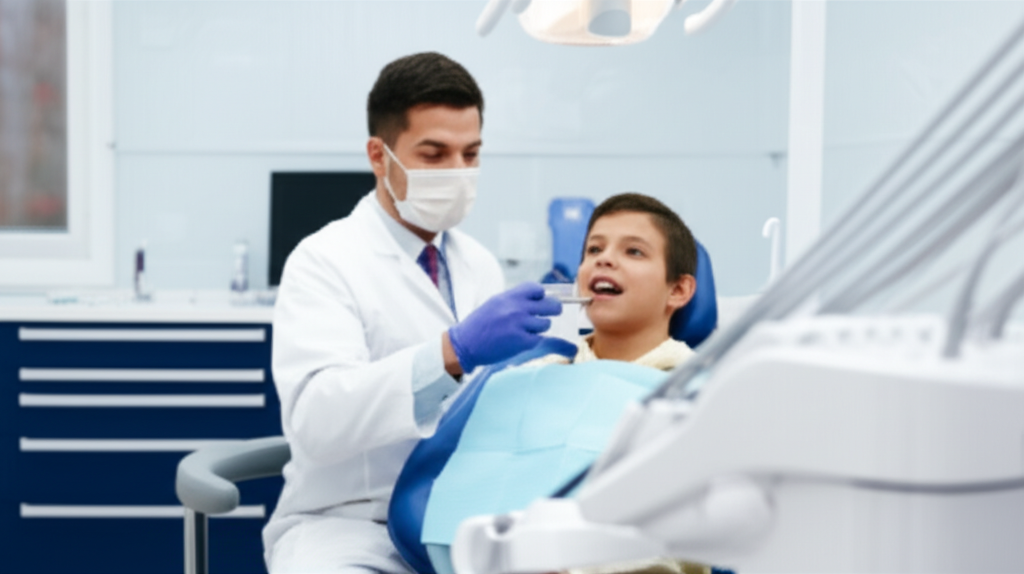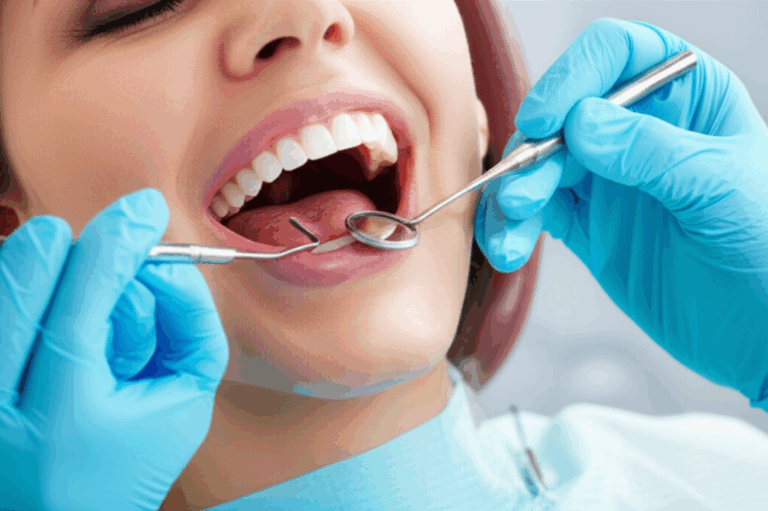
Can a Dentist Treat a Minor Without a Parent Present? Understanding Consent Laws & Exceptions
Have you ever wondered, “Can my teen visit the dentist without me?” Or maybe you’re an older teen asking, “Am I allowed to see the dentist myself?” Perhaps you’re a dentist dealing with a worried parent running late, or a child shows up in pain with no adult around. These situations are common, but the rules about treating minors without parents are confusing. You need simple, clear answers—not pages of hard-to-read legal talk.
Let’s figure this out together. Whether you’re a parent, a dentist, or a minor, this guide will help you understand the rules about dental care for kids and teens. We’ll explain what consent really means, when exceptions happen, and how to keep dental care safe and smooth for families.
In This Article
- The Core Question: Why Is Parental Consent Required for Minors?
- When Can a Dentist Treat a Minor Without a Parent?
- Dental Emergencies
- Emancipated Minors
- The Mature Minor Doctrine
- State Law Variations & Age Thresholds
- Delegated Consent and Designated Adults
- Foster Care and Special Circumstances
- Real-Life Scenarios: How Does This Work in Practice?
- Risks and Liability for Dentists (and Parents)
- What Parents and Guardians Need to Know
- Navigating Minor Consent in Dental Care: Summary and Next Steps
- Frequently Asked Questions
The Core Question: Why Is Parental Consent Required for Minors?
The law basically says a minor is anyone under 18. Because kids are still learning to make smart choices about their health, they usually need an adult—like a parent or legal guardian—to say yes (give consent) before doctors or dentists can help them.
Why does this matter? Here’s why:
- Legal Safety: If a dentist treats a minor without the parent’s okay, they could get in legal trouble—even if the care was good for the child.
- Doing What’s Right: Parents and guardians are in charge of their child’s well-being, and dentists should respect that.
- Safety and Talking: Parents can share important medical details, help with instructions after dental work, and help their kids feel safe.
Informed consent is more than just signing a paper. It means knowing what’s going to happen, understanding the good and bad, and agreeing to do it. For minors, a parent or guardian almost always handles this.
> Think of the dentist’s office like a plane. The dentist is the pilot. Before taking off, the crew makes sure all passengers (patients) are ready, and kids need a grown-up to fly with them.
When Can a Dentist Treat a Minor Without a Parent Present?
Life isn’t always simple. Emergencies happen, laws have wiggle room, and sometimes a parent can’t make it. Here’s where things get tricky for both families and dental offices.
Dental Emergencies
Suppose a teen at school falls and breaks a tooth. Nobody can reach the parent. Should the dentist do nothing? No way.
In a real emergency—if not helping the child could lead to big harm or major pain—dentists can treat without a parent’s permission right then.
Why is this allowed? This is called implied consent by necessity. The law assumes any parent would want their child to get help if they couldn’t be reached.
But there are rules:
- The emergency should be clear—like heavy bleeding, bad infection, or serious injury.
- The dentist should still try to call the parent as soon as they can.
- After the emergency is under control, the dentist needs parent permission before doing anything extra.
Example:
A 15-year-old comes in with a knocked-out tooth and in a lot of pain. The dental team can stop the pain and protect the injury before getting full permission from the parent for other treatments.
Emancipated Minors
An emancipated minor is a young person who becomes a legal adult before turning 18, usually by court or by getting married, joining the military, or sometimes living alone and supporting themselves.
Emancipated minors can say yes to any dental or medical care without their parent’s permission.
How can you know if a minor is emancipated?
- They usually have a legal paper (from court).
- Dentists should take a copy and keep it in the records.
Tip: If you think a patient might be emancipated, ask for proof to keep everyone safe.
The Mature Minor Doctrine
Some laws understand that older teens aren’t little kids. The Mature Minor Doctrine is a rule in some places that lets older minors (like 16- or 17-year-olds) agree to simple medical or dental care if they’re mature enough to understand.
But:
- This idea is not in every state. Some places have clear laws; others go by court cases.
- It’s mainly for easy treatments—like cleanings or small fillings, not big surgeries.
- The dentist has to decide if the minor really gets what’s going on.
In real life:
- A 17-year-old who shows good judgment and takes care of their own health may be allowed to consent to basic dental work—if state law and the dentist’s office policy say it’s OK.
State Law Variations & Age Thresholds
Here’s where things get surprising: Consent laws for dental work change from state to state, and even by city or county sometimes.
Some states have certain ages (like 16 or 17) when minors can say yes to simple medical or dental work. Others only allow this for certain care (like mental or reproductive health, not usually dentistry).
What to do:
- Look up your state’s health department or dental board website—they may have simple guides or consent forms.
- Most dental offices won’t treat a minor for non-emergency care without parent or legal guardian consent (unless a clear law says otherwise).
> Fun fact: In some school dental clinics, parents sign a blanket consent form at the start of the year so their child can get care even if they’re not there.
Delegated Consent and Designated Adults
Life can get busy. If you get stuck at work and your child’s at the dentist with someone else, can Grandma or Aunt Sue give permission?
Yes, if you plan ahead! A parent can write and sign a paper that lets another adult say yes for certain dental care.
What do you need?
- A signed and dated form saying which adult can help and what care they can approve.
- These are available from many dental offices, or you can write one yourself. States may have rules about what the paper needs to say, so check with your dentist.
Schools, babysitters, even coaches can be listed—it just needs to be clear.
Foster Care and Special Circumstances
How about kids in foster care or under a court-appointed guardian?
- Foster children: The agency, caseworker, or foster parent usually decides, depending on local rules.
- Legal guardians: The person the court put in charge gives consent.
If not sure, dental offices should ask for papers showing who can agree to treatment.
Real-Life Scenarios: How Does This Work in Practice?
Let’s look at some examples to make the rules easier to understand.
Scenario 1: Cleaning for a 15-Year-Old Without a Parent
A teen arrives on their own for a cleaning. The parent is at work but sent a signed consent form with Grandma. Can the cleaning be done?
- Yes, if the office has a real, signed paper from the parent naming Grandma.
- No, if no written permission is given.
Scenario 2: Emergency Tooth Pull for a 12-Year-Old
A child has a swollen, painful tooth. The parent can’t be reached.
- The dentist can treat the pain and infection right away since it’s an emergency.
- The dentist must contact the parent as soon as possible for any added care.
Scenario 3: 17-Year-Old Wants Wisdom Teeth Checked Alone
It depends on the state and the office policy.
- In some states, if the dentist thinks the teen is mature, they can do a simple exam.
- In most offices, for surgery, the parent must give written consent.
Scenario 4: Foster Child at a New Dental Office
A foster parent brings a child in. The office should make sure the adult has the right papers to prove they can agree to care.
Risks and Liability for Dentists (and Parents)
What could go wrong if a dentist works on a minor without permission? Here are some real problems:
- Legal trouble: Lawsuits for touching a patient without consent, dental license problems, or even criminal charges.
- Insurance issues: Dental insurance might not cover treatments without proper consent.
- Loss of trust: Parents might no longer trust the dentist, hurting the relationship.
- For parents: Not giving clear consent could slow down or block care in a pinch.
Dentist’s best bet: If not sure, always get signed permission. In emergencies, write down all calls and steps you took.
What Parents and Guardians Need to Know
Feeling nervous? Or maybe you want to be super-prepared, just in case. Here’s how you can help your child get safe, easy dental care.
1. Ask Questions Early
Talk to your dental office about their rules for kids and consent. Find out what they do for regular visits and for emergencies.
2. Leave Emergency Contacts
Tell the office who they can call if you can’t be reached. Teach your child what to do if something goes wrong at school or with another caregiver.
3. Use Written Consent Forms
If you might not be there for your child’s visit, fill out a delegated consent form ahead of time. Say who can decide for you, and what care you allow.
4. Update Your Child’s Information
Give the dentist up-to-date info on medicines, allergies, and health problems. It might seem like a lot of papers, but it really helps in an emergency.
5. Know Your Rights and Limits
You can pick your child’s dentist and get info about all care. But in a real emergency, a dentist can act without waiting for you.
6. Stay Calm in an Emergency
If you can’t be there, remember—dentists are trained to do what’s best and the law protects your child too.
Navigating Minor Consent in Dental Care: Summary and Next Steps
Let’s sum it up:
- Parent or guardian consent is almost always needed for routine dental care for kids and teens.
- Emergencies are different: Dentists can act to stop big harm, but should still contact the parent ASAP.
- Emancipated minors, mature minors, or those with delegated consent may say yes in some cases. Always check the rules and keep good records.
- Written consent is best: For regular visits or letting someone else take your child, having it in writing helps everyone.
- Talk with your dental office: Planning ahead makes things easier for everyone.
What you can do:
- Check and update your child’s medical permissions each year and if your family changes.
- Share your worries with your dentist—work schedules, living situations, and more.
- With older teens, include them in talks about their health so they learn to take charge.
Not sure about your state’s laws? Ask your dental office—they know the rules and can help. For extra info, check out the American Dental Association.
Frequently Asked Questions
Can my child go to the dentist alone for a cleaning?
Most of the time, a written consent from a parent or guardian is needed for minors—even for simple cleanings. Some offices let older teens come alone if the paperwork is done in advance.
Do dentists have to treat minors in an emergency, even if a parent isn’t there?
Yes, if it’s a real emergency, the dentist can help right away but should contact the parent as soon as possible before doing anything else.
What if my teenager is 17? Can they make their own choices?
It depends on your state’s laws and the policy of the dental office. In most places, for anything big, parent consent is still required.
Can I let someone else take my child to the dentist?
Yes! If you sign a permission form ahead of time, naming who can bring your child, that works.
What about foster children?
Normally, the foster parent or agency has the right to decide, but they need papers to prove it. Medical forms should show who can make choices.
Additional Practical Advice
If you’re a dentist or work in a dental office:
- Know your state’s dental board rules.
- Teach your team when exceptions apply and how to track permissions.
- Put your rules about minors and consent on your website and in appointment reminders.
If you’re a parent:
- Think about leaving a signed consent form with your dentist if you can’t always come to appointments.
- In split families or shared custody, make sure everyone knows who can consent for the child.
Older teens:
- Ask your dentist what their policy is for solo visits.
- Keep track of your own health info—you’ll be an adult soon!
Real-World Connection
Maybe you haven’t run into this yet—until school calls: “Your child was hurt in gym and needs to see a dentist.” Or maybe you want your growing teen to handle some of their own care. The secret is to plan, talk things out, and get the paperwork right.
If you’re ever unsure, just call your dental office—they can clear it up fast.
> Pro tip: To see how dental choices are made—including for things like dental labs for retainers or for picking crowns and bridges—check out helpful guides like dental practical guide.
The Bottom Line
Dental care for young people has to balance safety, the law, and ease for families. Here’s what you need to know:
- Routine visits usually need parent consent.
- Emergencies mean dentists can act, but must communicate quickly.
- Written permissions for others to bring your child make life simpler.
- All of this is about keeping kids safe and giving you peace of mind.
As your friendly neighborhood dental educator, my goal is to make these rules easy to understand so you can focus on keeping your kids healthy.
Confused about your local rules?
Call your dentist, check your state health department, or reach out to the American Dental Association.
Related Reading:
To learn more about the amazing work behind dental labs—whether you want digital solutions or custom crowns and bridges—see our other guides for how new tech is making care safer for all ages.
Don’t forget: Health choices can be confusing, but being ready and asking questions makes things clear. Whether you’re a parent or a teen about to become an adult, being prepared means less stress and more confidence.
Now you’re set for your next steps, and that’s something to smile about.








